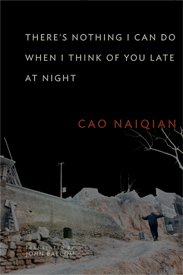Much has been said on this writer in recent weeks. His first book, “There’s nothing I can do when I think of you late at night” was published, six months ago, in the prestigious Asian collection at the University of Columbia. The book is part of the “long  list” of best translations prepared by the University of Rochester but did not win a prize.
list” of best translations prepared by the University of Rochester but did not win a prize.
A collection of short stories has been translated into Swedish by Göran Malmquist, a member of the Nobel Academy, who has played an important role in the award to Gao Xingjian’s of the Nobel Prize for Literature.
In French, a short story “Jujube the little savage”, translated by Noel Dutrait, is published in the Internet journal “Impressions of Far East” that has beeen launched by the team “Chinese Literature and Translation” from the University of Provence (http://ideo.revues.org) ; several classical texts are available and an unpublished short story by Su Tong.
Cao Naiqian is a very interesting character: born in 1949 in a village in Shanxi, coal miner, worker then peasant. Since 1972, he is a police inspector in Datong, one of the most polluted cities in China. He began writing at thirty seven years and speaks about his province, troglodyte villages, yellow and dry loess plateaus and mostly villagers from the Wen clan (where Cao spent a year during the Cultural Revolution).
Concision and even minimalism, realism of descriptions but sometimes a feeling of repetition because in this very primitive environment, everything is around food and sex.
The translator, John Balcom, feels (and rightly so) that he is close to the great Shanxi writer Zhao Shuli (1906-1970) who praised the success of land reform in particular in “The Village of Sanliwan” (Beijing 1964, ELE ). Shanxi has not changed much but Cao Naiqian spares us the moralizing comments of his older colleague.
Bertrand Mialaret





